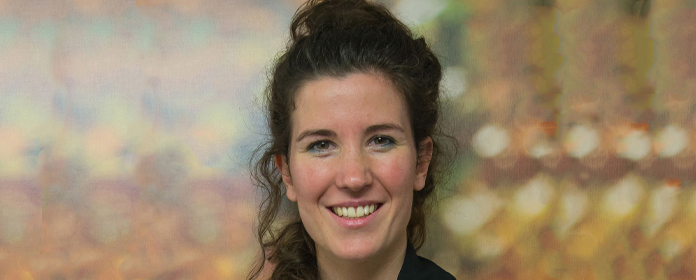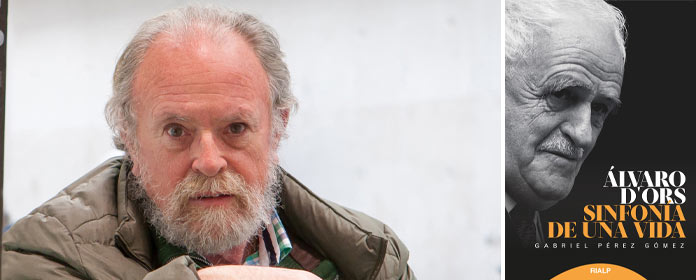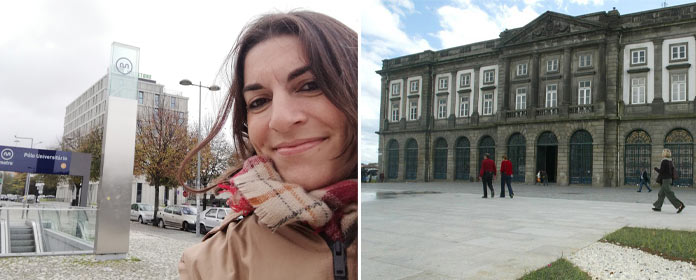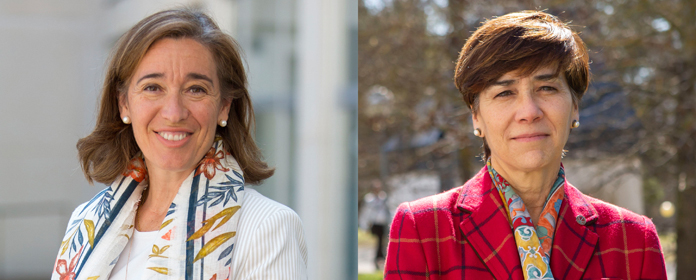Family ties, point of meeting among the ICS projects in the framework of its VIII annual meeting
The Vice President of research of the University, Iciar Astiasarán, exhorted the researchers to continue making significant scientific advances in order to be a reference in their fields.
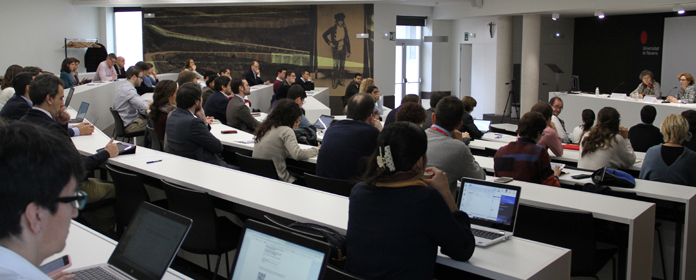
PHOTO: Elena Beltrán
The VIII annual meeting of the Institute for Culture and Society (ICS) of the University of Navarra has revolved around topic of development and social bonds, focusing on family ties. position The opening was given by Iciar Astiasarán, Vice President of research, and Ana Marta González, scientific coordinator of the center.
The Vice President emphasized that the University aspires to be a world reference in several areas and one of them is precisely the family. She expressed that Office of the Executive Council has good expectations about the good development in the long term deadline of some of the projects that are underway at campus.
He mentioned that in recent years the international research community has made advances in fields such as health or technology, but considered that there are still many challenges in terms of values. Along these lines, he urged ICS researchers to continue working to make significant scientific advances that will allow them to be referents in their different fields of the Humanities and social sciences. "Years of dedication allow us to go beyond opinions and set Chair", he said.
For her part, Ana Marta González analyzed the current context of family ties. First of all, she looked at the acceleration of social change, which in her opinion has to do not only with external phenomena but also with our own experience: "What has accelerated is the rhythm of social life, the quantity and speed of the social interactions of which we form part, and which we find it difficult to avoid, without sacrificing something which, in the meantime, has come to form part of our self". He also alluded to the way in which the socioeconomic environment conditions the development of family life.
Professor González emphasized the need to analyze some inertias, practices and narratives of today's world that can help us to understand it better and "orient it in a more human direction". For example, she noted "the coexistence of traditional inertias and modern ideals of reason, equality and freedom, interwoven with postmodern consumer practices, inspired not so much by considerations of utility and efficiency as by romantic aspirations and narratives of self-expression and identity."
On the other hand, he stressed that "although forming a stable family continues to be for many people one of life's guiding ideals, this idealization, itself marked by deep tensions, contrasts sharply with the daily reality of many families, subject to cultural and social pressures that are difficult to manage with good will alone".
He added that "to raise a family, to generate an environment conducive to the development of mature personalities is not a simple task today. From this perspective, the fact that, since the 80s and 90s, the family represents a shared and even publicly reinforced ideal, constitutes, as Precht rightly suggests, more an exercise of 'will and representation' than a sociologically thriving reality".
He also emphasized that in this context "a serious reflection on the familyis necessary", focusing on "the dynamics of family relationships themselves, avoiding the temptation to reduce the goodness of such relationships to the goodness of the subjects of such relationships, since good people do not always generate good relationships".
Intervention by Ana Marta González Papers of the VIII annual meeting- "Family through the lens of economics". Joseph Gomes, Navarra Center for International Development, ICS.
-A Closer look at the positive Crossover between supervisors and subordinates: The Role of Organizational Culture and FSBB". Mireia Lasheras, IESE.
- "How to talk about the family in a plural society". Cristina López del Burgo, Education of affectivity and human sexuality, ICS.
- "Discursive Approaches to the Family". Inés Olza and Sofía Brotons, Public discourse, ICS.
- "Family relationships at the end of life: what changes?". Carla Reigada, ATLANTES Program.
- 10% of those born in Spain are in vitro. On the idea of "bonding" of families who want a child and resort to assisted reproduction techniques". Francisco Güell, group 'Mind-brain'.
- ''How to Minimize Abuses of Parental Authority without Arming a Leviathan State.'' David Thunder, 'Religion and Civil Society', ICS.
- "The occupation of public space by family ties". Lourdes Flamarique, Emotional culture and identity, ICS.
- "The family: the strength of tradition, the power of change". Julia Pavón, Creativity and Cultural Heritage, ICS.


